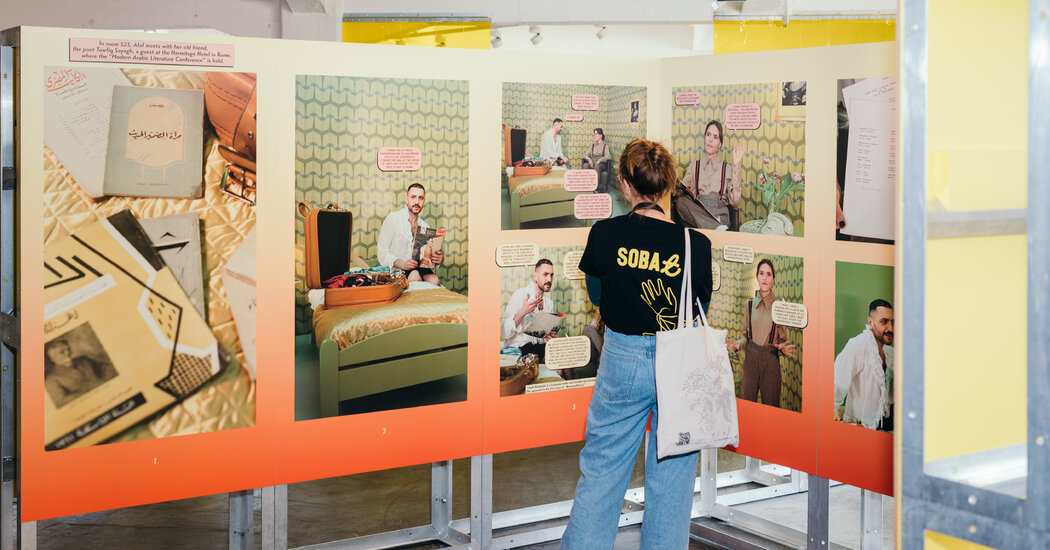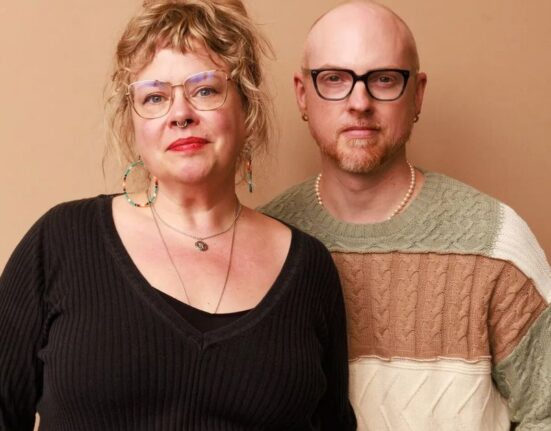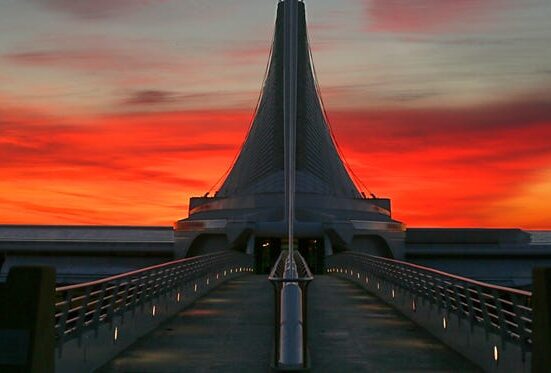Documenta, the German contemporary art exhibition considered one of the most prestigious in the world, fell into crisis this week after the entire team tasked with finding its next artistic director resigned after a series of disputes with administrators related to the Israel-Hamas War.
The break up of the committee meant the start date for Documenta’s next edition may have to be pushed back later than 2027, when it was scheduled to open in Kassel, Germany, a Documenta spokeswoman said in an email.
The last four members of the search committee stepped down Thursday, just days after its other two members had resigned, all for reasons related to the ongoing war in Israel and Gaza and the debate surrounding it in Germany.
The four who resigned on Thursday night — Simon Njami, Gong Yan, Kathrin Rhomberg and María Inés Rodríguez, who are museum directors and curators — said in an open letter that they were stepping aside in part because the political climate in Germany around the war in Israel and Gaza meant it now appeared impossible to stage an art show that allows “diverse perspectives, perceptions and discourses.”
In a news release Documenta, which is rivaled only by the Venice Biennale for art world prestige and public attendance, acknowledged the search committee’s work had become fraught “in view of the terrorist attacks by Hamas on Oct. 7, 2023, and the growing antisemitism in Germany as well as the polarized debates surrounding it.” Documenta’s board and staff would now try to work out how the selection process could proceed, the news release said.
The crisis started on Nov. 10, when Bracha Lichtenberg Ettinger, who is Israeli, resigned after administrators rejected her request for a pause in the committee’s search, in recognition of the recent deaths in Israel and Gaza.
On Nov. 12, Ranjit Hoskote, an Indian art critic and poet, resigned from the Documenta committee after the administrators repeatedly urged him to distance himself from a petition he had signed in 2019, about an event in India on the links between Hindu nationalism and Zionism, that described Israel as an apartheid state.
The upheaval at Documenta is just one example of how Europe’s art world is being torn by debates about Israel and Gaza, as some institutions have moved to postpone the shows of artists who have criticized Israel.
On Monday, the Folkwang Museum in Essen, Germany, ended a collaboration with Anaïs Duplan, a Haitian curator based in the United States, just days before an exhibition his studio was working on was scheduled to open. The museum said in an email to Duplan — which the artist posted to Instagram — that he had made unacceptable social media posts describing Israel’s actions in Gaza as genocide. (In an emailed statement, the museum said that it instead was posts on Duplan’s Instagram supporting the Boycott, Divestment and Sanctions movement against Israel, of B.D.S., that led to the decision.)
The following day, the Art Newspaper reported that the Lisson Gallery in London had canceled a show by Ai Weiwei, the popular Chinese artist, scheduled to open on Nov. 15, after he wrote on X about how the “Jewish community” had a significant influence in the United States. “The sense of guilt around the persecution of the Jewish people has been, at times, transferred to offset the Arab world,” Ai added in the post from Oct. 24.
In an email, Ai said that he had three other shows canceled, too, because of the post — one at Lisson in New York, in 2024, as well as shows at Galerie Max Hetzler in Paris and Berlin — and that he did not understand the decisions. “What baffles me is why a gallery would stifle my expression and moral judgment,” Ai said of Lisson’s move. (A Lisson spokeswoman said in an email that its shows had been postponed in agreement with the artist.)
For the artists and curators involved, the cancellations are a growing concern, but to some politicians in Germany, this is an overreaction. On Thursday, Claudia Roth, Germany’s culture minister, said in an interview with Die Zeit, a German newspaper, that the idea that institutions now had to Google whether artists supported a boycott of Israel was “complete nonsense.”
Protecting artistic freedom was one of her most important jobs, she said, although that freedom had its limits if it crossed into hate speech, especially at a time of rising antisemitism in Germany.
Documenta was initially staged in 1955 as the first large-scale exhibition in West Germany of the art of the European avant-garde. It was a direct response to the Degenerate Art Show, the denunciatory exhibition of modern art staged by the Nazis in Munich in 1937. Each edition since then — it now takes place twice a decade, from June to September, and is known as a “Museum of 100 Days” — has attempted to bring the art of the whole world to Germany.
But it has struggled to move forward following its highly polarizing 2022 edition, which brought Documenta’s global ambitions into direct conflict with Germany’s “memory culture” or institutional efforts to face its Nazi past. It opened with the prominent display of an agitprop mural from Indonesia that included antisemitic caricatures. Although the mural was taken down, it set off a monthslong debate in Germany’s art world about antisemitism, Palestinian activism and Germany’s relationship to formerly colonized countries. The show’s director-general resigned that summer. Its artistic leadership was called to testify before parliament, and officials threatened to revoke funding.
Hoskote said Documenta was one of the art world’s greatest events, partly because it had always been a forum for new ideas. He worried that core idea was now at risk. In Germany, at least, he said, art institutions seemed to be losing their focus on the “imagination and creative,” and are instead just focusing on one issue.







